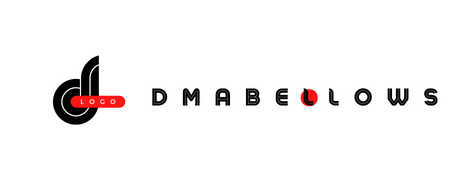Revolutionize pharma quality management with tailored applications
Pharmaceutical quality management is at a crossroads, where digital transformation can redefine industry standards. Tailored applications offer innovative solutions to streamline processes, enhance compliance, and reduce inefficiencies. By integrating advanced technologies such as AI and IoT, companies can respond swiftly to market demands and elevate their quality control practices. Discover how customized software can revolutionize your approach to quality management and propel your organization toward success.
Tailored Applications for Pharma Quality Management
Pharmaceutical companies face a critical need for tailored applications to manage quality efficiently. By utilizing customized software solutions like those from https://www.amazig-systems.com/, the pharma sector can significantly enhance productivity and ensure compliance with stringent regulations. These applications, designed for unique operational contexts, transform how pharmaceutical processes operate by bridging gaps in legacy systems. This transformation is essential for manufacturers to address complex supply chains and adapt swiftly to changing market demands.
A lire en complément : How to Choose the Best Probiotic Supplements for Digestive Health Based on Scientific Evidence?
Key benefits of customized pharma software include increased efficiency, improved regulatory compliance, and the ability to execute rapid market responses. Tailored solutions help companies maintain updated regulatory documents, manage quality control seamlessly, and streamline various functions such as audit management and change controls. They also present an innovative leap from paper-based processes to digital ecosystems, thereby reducing errors and promoting cohesive operations.
Successful case studies demonstrate how tailored applications are already revolutionizing pharmaceutical operations. From enhancing collaboration to improving risk management, these custom software solutions empower organizations to meet modern challenges head-on, fostering a culture of continuous improvement and innovation within the industry.
A lire également : Does the Use of Binaural Beats as a Study Aid Improve Focus and Memory Retention in Students?
Innovations in Digital Transformation for Pharma Quality
The Role of AI and IoT in Quality Management
Artificial Intelligence (AI) and the Internet of Things (IoT) are pivotal in modernizing quality management systems in pharmaceuticals. These technologies enable real-time monitoring and streamline pharmaceutical quality control by improving data analytics for pharma quality assurance. AI can predict potential product issues, enhancing risk management in pharmaceutical quality and reducing non-compliance. IoT devices continuously collect and share data, providing immediate feedback and facilitating swift adjustments in manufacturing processes. This seamless integration of technology offers comprehensive solutions for improving operational efficiency in pharma quality tasks.
Integrating Quality Management Systems with ERP and MES
Integrating quality management systems (QMS) with enterprise resource planning (ERP) and manufacturing execution systems (MES) is transforming how the pharmaceutical industry operates. This integration offers tailored applications for GMP compliance by consolidating processes into a unified digital framework, thus streamlining quality assurance in pharma. Through innovations in pharma quality management, companies can effortlessly manage workflows and embrace automation in pharmaceutical processes, ensuring robust pharma compliance solutions and achieving regulatory compliance in the pharmaceutical industry.
Overcoming Challenges in Transitioning to Digital Quality Management Systems
Transitioning to electronic quality management systems (eQMS) presents challenges like resistance to change and potential disruptions. Leveraging AI in pharma and implementing comprehensive training solutions for quality management staff can address these hurdles. Bespoke software for quality management can enhance pharmaceutical processes while fostering collaboration among teams. Designing effective quality management frameworks involves embracing change and integrating technology into pharma environments, thus facilitating sustainable operations and continuous improvement in pharmaceutical workflows.
Best Practices for Implementing Tailored Software Solutions
Creating a Comprehensive Roadmap for Implementation
Developing a comprehensive roadmap is crucial for successful implementation of electronic quality management systems in pharma. Start by mapping existing processes to identify areas for improvement. It's essential to consider regulatory compliance and involve stakeholders in defining objectives. Include clear milestones and deadlines to ensure timely progress. This approach not only enhances pharmaceutical quality control but also aids in identifying potential risks early, allowing for proactive management.
Engaging Employees in the Digital Transition Process
In the digital transformation in pharma, engaging employees early is vital. Quality management systems in pharmaceuticals often face resistance due to unfamiliarity. By facilitating hands-on training and providing continuous support, you ensure smoother transitions. Empower employees by involving them in testing phases, gathering feedback to refine processes. This participative approach streamlines quality assurance in pharma and builds a team ready to embrace technological advancements.
Continuous Improvement Strategies Post-Implementation
Post-implementation, focus on continuous improvement in pharmaceutical processes. Regularly review the system’s performance against objectives and use data analytics for pharma quality assurance to uncover improvement opportunities. Foster a culture of openness where feedback is regularly sought and acted upon. By integrating cloud-based quality management systems, the pharmaceutical industry can adapt to changing needs and regulations efficiently, securing long-term benefits of digital integration.
